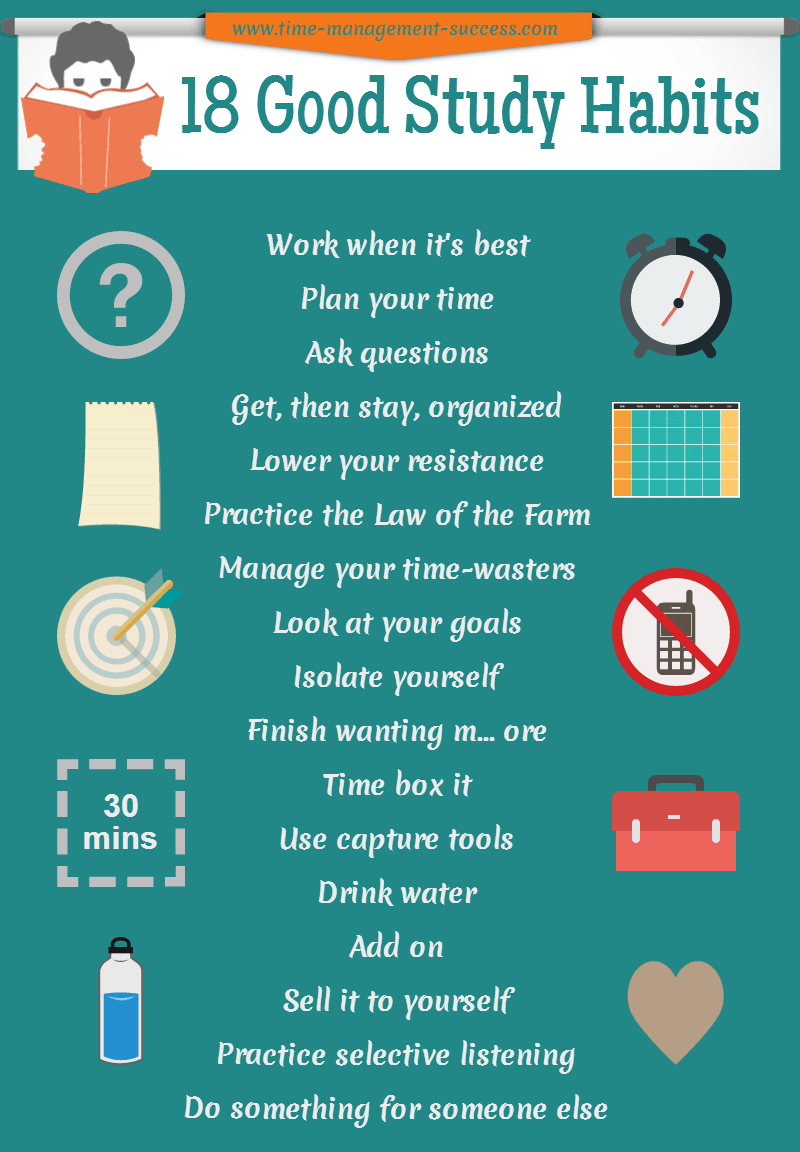Pulse of Information
Your source for the latest insights and updates.
Study Like a Pro: Secrets They Didn't Teach You in School
Unlock your study potential with insider secrets! Discover proven techniques they never taught you in school. Boost your grades today!
Mastering Time Management: Techniques to Boost Your Study Efficiency
Mastering time management is crucial for students looking to enhance their study efficiency. By implementing effective time management techniques, you can minimize procrastination and improve your focus. One popular strategy is the Pomodoro Technique, which involves studying in short bursts of 25 minutes followed by a 5-minute break. This method not only helps maintain concentration but also reduces mental fatigue. Additionally, using a daily planner to schedule study sessions can provide structure and keep you accountable.
Moreover, prioritizing tasks is essential for effective time management. Start by creating a to-do list and categorizing tasks based on their urgency and importance. Techniques like the Eisenhower Matrix can help you distinguish between what is urgent and what is important, allowing you to focus on high-priority tasks first. Regularly reviewing your goals and adjusting your study plan can further enhance your efficiency, leading to better academic performance and a more balanced lifestyle.

The Art of Note-Taking: Strategies for Retaining Information Like a Pro
The art of note-taking is an essential skill for anyone looking to enhance their information retention and learning efficiency. By employing strategic methods, you can transform your notes into powerful tools for memory recall. One effective approach is the Cornell Method, where you divide your page into two columns: one for cues and the other for notes. This method encourages active engagement with the material and helps in organizing thoughts clearly. Additionally, using visual aids like diagrams or mind maps can significantly boost your understanding and retention of complex topics.
Another noteworthy strategy is the use of active listening techniques, which involve summarizing information in your own words as you go. This enhances comprehension and makes the material more relatable. Furthermore, consider the implementation of review sessions where you revisit your notes periodically; this spaced repetition strengthens your memory over time. To cap it off, always remember to keep your notes neat and well-organized, as clear formatting plays a crucial role in aiding your study habits and making information easier to digest.
Are You Using the Right Study Techniques? Discover the Secrets to Effective Learning
In today's fast-paced world, many students and professionals struggle to keep up with their learning goals. The key to improving your retention and understanding lies in using the right study techniques. Instead of relying solely on passive review methods like highlighting or rereading, consider incorporating active learning strategies such as summarization, self-testing, and teaching others. These approaches not only enhance comprehension but also make the learning process more engaging.
Additionally, time management plays a crucial role in effective learning. Techniques such as the Pomodoro Technique, where you study for 25 minutes followed by a 5-minute break, can help maintain focus and prevent burnout. It's also important to create a conducive study environment, free from distractions. By combining the right study techniques with effective time management, you'll unlock the secrets to successful, lasting learning outcomes.